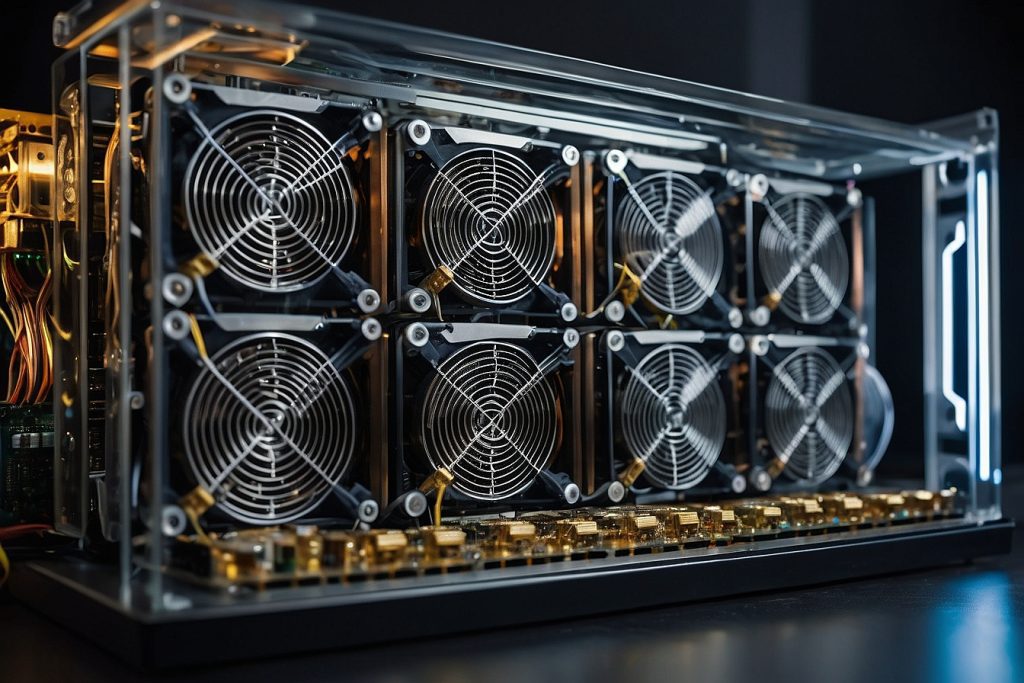
Blockchain for Beginners: Cryptocurrency Mining
So you’ve probably heard about Bitcoin going up and down in price all the time. Your tech-savvy friend keeps talking about how they’ve made a bunch of money from something called “cryptocurrency mining.” What is this all about? And more importantly, can you actually make money doing it too?
I’m here to give you a beginner’s guide to the world of crypto mining. Strap in, because we’ve got a bit to cover! But by the end, you’ll understand exactly what mining is, how people profit from it, and whether it’s something you should consider trying yourself.
The Purpose Behind Cryptocurrency Mining
Let’s start at the very beginning – what is cryptocurrency? You’re probably familiar with regular currencies like the US dollar or Euro. Traditional money that governments back and control. Cryptocurrencies are different in that no government or central bank oversees them. Instead, they operate on decentralized computer networks spread across the globe.
The first and most famous cryptocurrency is Bitcoin, invented back in 2009. And just like how regular currencies need some process to prevent fraud, cryptocurrencies use special protocols to confirm every transaction made with them is valid. That confirmation system in crypto world? It’s called mining.
In essence, cryptocurrency mining is the process where high-powered computers compete to solve complex math problems. But why do they need to solve math problems in the first place?
Here’s an analogy to help explain: let’s say five friends want to send money back and forth to each other on an app regularly. Unlike PayPal or Venmo where transactions go through centralized company servers, these five friends want their app payments recorded on multiple versions of their shared ledger stored across each of their laptops.
However, they run into an issue of trust because how will they know for sure no one tampers with or falsifies entries in some ledgers? Enter cryptocurrency mining – the solution is requiring each friend’s computer to solve tedious math problems in order to add new payment blocks to the chain of ledgers. This ensures accuracy and consensus as faking solves would require ridiculous amounts of computing effort. Mining difficulty regulates entry into the transaction verification process on a blockchain.
The Big Business Behind Crypto Mining
Now you understand mining at its core – persons unknown to each other agreeing to use their devices to maintain accurate ledgers of cryptocurrency transactions. But why is it such big business today? After all, this is some pretty tedious and electricity-intensive number crunching. This is where mining incentives and rewards come in.
Cryptocurrency codes are set up to mathematically drop coins to whichever miner computer solves the problems first. In the early Bitcoin days, a home laptop could score some sweet coins. However, as cryptocurrencies caught mainstream fever, supercomputers entered the mining scene in a big way.
Let’s talk hardware and profits. Cryptocurrencies limit the supply of available coins – for Bitcoin, the total number will cap at 21 million. As coins get harder to mine over time while demand grows, prices have consistently surged. Though volatile, Bitcoin’s dramatic thousand-plus percentage gains year after year has meant staggering profits for efficient large-scale miners.
Some context on earning potential – a single specialized Bitcoin mining computer bought for around $12,000 in 2019 could potentially have generated over $50,000 in gross profit within one year. Scale that out to a well-run operation with dozens or hundreds of the latest custom hardware, cheap electricity supply contracts, and low overhead, and you start seeing some tech goldrush-level stuff.
Should You Start Mining Cryptocurrency?
Alright the stage is set. You’ve now got the background on what this trend is all about. The real question is – between stories of Bitcoin millionaires and mining empires backed by billionaires, should you quit your day job and dive into this digital gold rush?
The short answer is maybe, but tread very carefully. Cryptocurrency mining can still be viable for hobbyists with gaming PCs and students wanting to test the waters. However, it is extremely challenging to be profitable enough to make a living without making significant investments into equipment and infrastructure.
Here are some serious factors to consider if you want to get into crypto mining:
- Electricity Costs: Energy needed to power intensive hardware can be one of the biggest sinks on profit margins. Check rates in your area – cheaper power equals better prospects.
- Equipment Expenses: You’ll want specialized high-output computers designed specifically for mining cryptocurrency efficiently. Budget at least $3,000-$5,000 for a starter setup.
- Complexity and Maintenance: This is no simple plug-and-play operation. You’ll have to be pretty technically skilled to assemble and maintain your own mining rig, specially configured for hash rates and cooling.
- Competitive Landscape: Big players with deep pockets dominate and target the most lucrative coins. You may end up limited to less profitable ones.
So in summary – the crypto mining world has evolved rapidly in recent years into an arms race for cutting-edge hardware and access to cheap energy. The profits are there theoretically. However, practical barriers make it tough for hobbyists without substantial capital and expertise to make decent money in the long run.
That said, with the right business model and execution, cryptocurrency mining can be lucrative for some. Just make sure you have ample funding and really know what you’re getting into! Hopefully this beginner’s guide gave you some helpful basic knowledge. But as with any high risk-high reward venture, do your own in-depth research before making the leap!